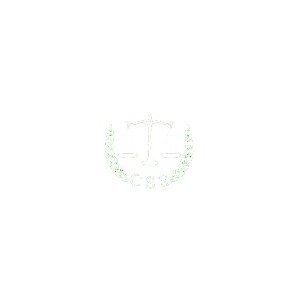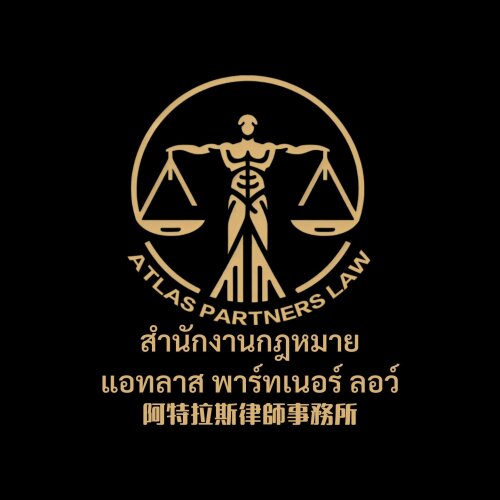About Structured Finance Law in Chiang Mai, Thailand
Structured finance refers to complex, tailored financial instruments used by companies and institutions to manage risk, raise capital, or finance large projects. In Chiang Mai, Thailand, structured finance is often used in real estate development, infrastructure projects, and large-scale business operations. This field involves creating investment structures such as securitization, collateralized obligations, and syndicated loans that meet specific commercial and regulatory requirements. With Chiang Mai’s growing economy and increased interest from both local and international investors, the demand for legal expertise in structured finance has risen steadily.
Why You May Need a Lawyer
You may need a lawyer specializing in structured finance if you are engaged in or considering complex financial transactions in Chiang Mai. Common situations include:
- Securing funding for major real estate or infrastructure projects
- Creating a securitization product or other structured financial instruments
- Negotiating with banks, private equity, or other investors
- Participating in syndicated loans
- Managing risks associated with local and cross-border investment
- Complying with regulatory requirements set by Thai authorities
- Restructuring debts or financial obligations
- Resolving disputes arising from complex financial agreements
A lawyer can help ensure transactions are compliant, minimize legal risks, and protect your interests throughout the process.
Local Laws Overview
Structured finance activity in Chiang Mai is primarily governed by Thai national laws, which apply locally in the region. Important legal frameworks and regulations include:
- The Civil and Commercial Code of Thailand, which outlines contract law and obligations
- Financial Institutions Businesses Act, governing banks and finance companies
- Securities and Exchange Act, addressing securities offerings and investor protection
- Regulations issued by the Bank of Thailand and the Securities and Exchange Commission
Additionally, foreign direct investment regulations, taxation laws, and bankruptcy laws also play major roles in structured finance. Practitioners must ensure compliance with licensing requirements, disclosure obligations, and anti-money laundering procedures. Regional considerations, such as local land ownership restrictions and municipal ordinances in Chiang Mai, can also affect how transactions are structured and executed.
Frequently Asked Questions
What is structured finance and how is it used in Chiang Mai?
Structured finance involves customized financial arrangements such as securitization or syndicated loans to fund large projects or manage risk. In Chiang Mai, these are often used for real estate, infrastructure, and cross-border investments.
Are there restrictions on foreign investment in structured finance transactions in Chiang Mai?
Yes, Thailand imposes several restrictions, particularly regarding foreign ownership of real estate and some types of financial entities. Legal guidance is essential to navigate these rules, especially in Chiang Mai where property investments are common.
Which government agencies regulate structured finance in Chiang Mai?
Key regulators include the Bank of Thailand, the Securities and Exchange Commission, the Office of the Board of Investment, and the Ministry of Finance.
Can structured finance products be offered to the public in Chiang Mai?
Generally, offerings of structured finance products to the public require compliance with the Securities and Exchange Act and may necessitate approvals or disclosure filings with relevant authorities.
What legal protections are available for investors in structured finance deals?
Thai law provides contractual protections, disclosure obligations, and certain investor safeguards through financial market regulations and oversight by the Securities and Exchange Commission.
Are there tax considerations for structured finance transactions?
Yes, taxes on structured finance can include VAT, withholding tax, specific business taxes, and stamp duties, which must be considered in transaction structuring.
How long does it take to set up a structured finance deal in Chiang Mai?
Timelines vary, but typically range from a few weeks to several months, depending on deal complexity, due diligence requirements, and the need for regulatory approvals.
Can disputes arising from structured finance transactions be resolved locally in Chiang Mai?
Yes, disputes can be resolved through local Thai courts or by using arbitration or mediation if these options are specified in the contract.
Do I need a local partner for structured finance projects in Chiang Mai?
For certain investments, such as those involving land or local business operations, a local partner may be necessary due to ownership restrictions and regulatory requirements.
What qualifications should a structured finance lawyer in Chiang Mai have?
Look for lawyers who are licensed in Thailand, have experience in finance law, understand local and international regulations, and are familiar with the types of transactions common in Chiang Mai.
Additional Resources
Here are some helpful resources and organizations for structured finance in Chiang Mai:
- Bank of Thailand - Provides regulatory guidance and licensing information
- Securities and Exchange Commission of Thailand - Oversees securities and financial instruments
- Chiang Mai Chamber of Commerce - Local business resources and networking
- Office of the Board of Investment - Information on incentives and investment rules
- Law Society of Thailand - Directory of qualified local legal professionals
Next Steps
If you are involved in or are considering a structured finance transaction in Chiang Mai, begin by consulting a qualified lawyer with expertise in this legal area. Prepare relevant documentation such as business plans, financial statements, and any prior agreements. Make a list of your main objectives and concerns to discuss during your legal consultation. Confirm your lawyer’s experience in structured finance and Chiang Mai’s local business climate. After your initial meeting, your lawyer can guide you through due diligence, structuring the transaction, ensuring compliance, and facilitating any required approvals or filings. Acting early can prevent costly legal issues and ensure your project runs smoothly.
Lawzana helps you find the best lawyers and law firms in Chiang Mai through a curated and pre-screened list of qualified legal professionals. Our platform offers rankings and detailed profiles of attorneys and law firms, allowing you to compare based on practice areas, including Structured Finance, experience, and client feedback.
Each profile includes a description of the firm's areas of practice, client reviews, team members and partners, year of establishment, spoken languages, office locations, contact information, social media presence, and any published articles or resources. Most firms on our platform speak English and are experienced in both local and international legal matters.
Get a quote from top-rated law firms in Chiang Mai, Thailand — quickly, securely, and without unnecessary hassle.
Disclaimer:
The information provided on this page is for general informational purposes only and does not constitute legal advice. While we strive to ensure the accuracy and relevance of the content, legal information may change over time, and interpretations of the law can vary. You should always consult with a qualified legal professional for advice specific to your situation.
We disclaim all liability for actions taken or not taken based on the content of this page. If you believe any information is incorrect or outdated, please contact us, and we will review and update it where appropriate.















